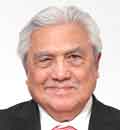THIS is the penultimate part of a series of columns on democracy. Focus was placed on four countries in Asia — China, Singapore, Malaysia and South Korea — comparative to the Philippines, extracting their best practices in governance, whether such practices are in line with our American democratic legacy or with its opposite, China's authoritarian system. We looked into the amalgam of practices from the three others closest to the Philippines in terms of cultural proclivities as we began post-World War 2 from a similar starting point with informally designated status as growing economies. Today, these three, including China, have progressed to a point where they have assumed the elevated status as developed countries. The Philippines has not!
The premises in these columns are that the most important priorities of governance, whether democratic or authoritarian, are "above all, to serve and promote the welfare of its people by protecting their security and well-being, maintaining law and order, and providing essential public services, which are equated with universal access to health care, education, employment, and dwelling (HEED). For this to be possible, governments must ensure that their economy grows and are stable. Freedom of speech, choice of beliefs, freedom to dissent, and even freedom to bear arms are subordinate." ("East Asian models of governance," The Manila Times, Sept 27, 2023.)
Continue reading with one of these options:
Ad-free access
P 80 per month
(billed annually at P 960)
- Unlimited ad-free access to website articles
- Limited offer: Subscribe today and get digital edition access for free (accessible with up to 3 devices)


